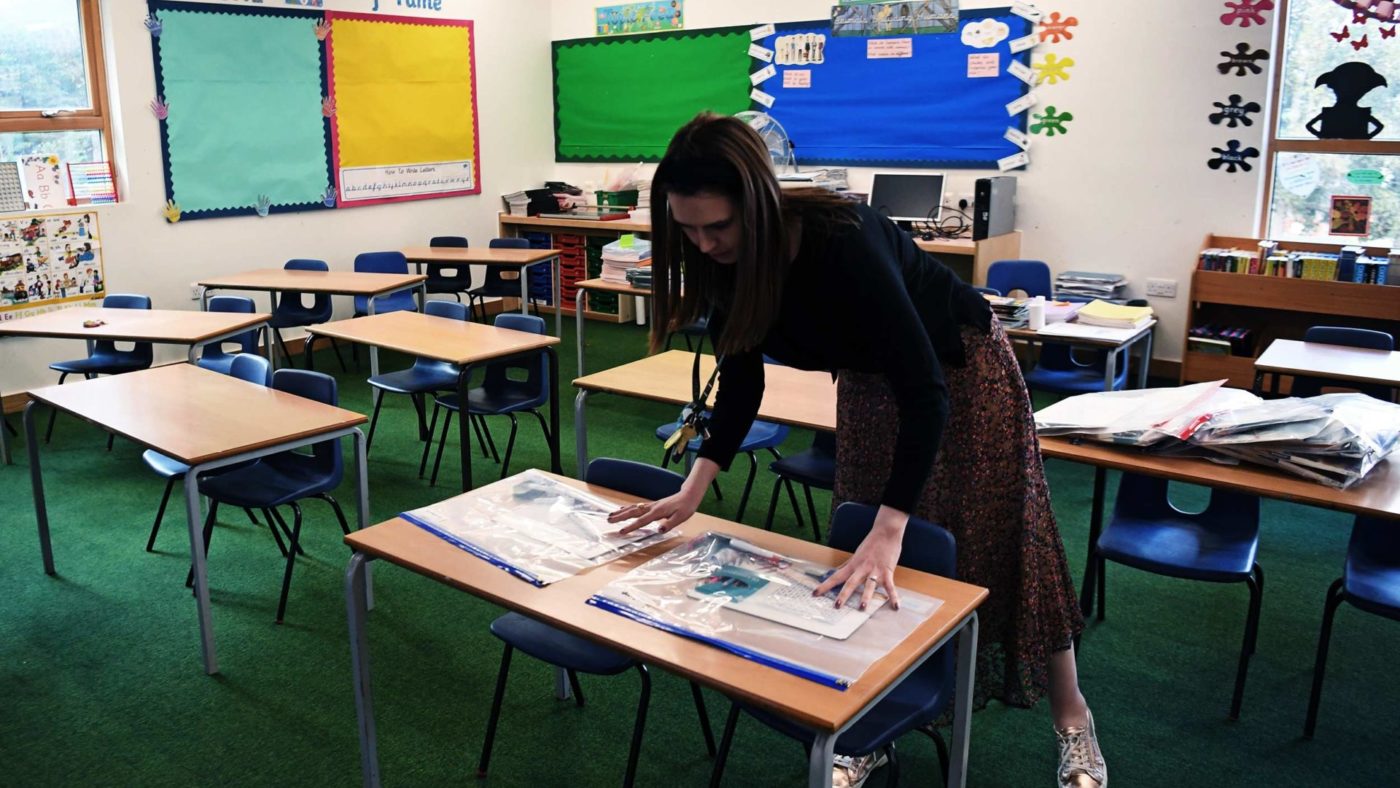Last week I went to a meeting at the primary school where I am chairman of governors. It was the first time I had crossed the threshold since March and, suitably sanitised and gloved, I examined the work the children had done this term, stories written, spellings corrected, sums completed. The children are delighted to be back and our attendance levels are higher than in normal times.
Yet the National Education Union (NEU) want to stop that in its tracks. Even by their standards the aggressive campaign to shut schools is shocking. While the teaching unions have always been classic examples of producer-captured organisations, this has truly exposed their complete disregard for the children their members serve.
My school made extensive efforts to educate its pupils through lockdown but we have still seen significant reductions in their maths skills and some have lost a year off their reading age. The organisation No More Marking gave a writing task to over 100,000 year 7 pupils and found they were, on average, performing at a level 22 months below what would normally be expected for their age. As schools carry out more assessments, we can expect evidence of the devastating impact of the lockdown to increase.
It is clear that even when the technology works and teachers are engaged, children learn less in online classes than in person. All too often, even this limited education will be thwarted by the practical problems. Not everyone has good broadband, and if they have two or three children trying to get online at the same time, it will fall over. The Government has provided schemes to supply laptops but these are never going to meet the needs of all families. At my school, staff prepared work and personally delivered books and worksheets to families without access to technology, but not all will show that dedication.
The inescapable truth is that children who are not in school will learn less and the disadvantaged will suffer the most. Good teaching requires constant vigilance, careful monitoring of progress, and a focus on marginal gains. None of this is possible if children are not in class.
Equally, every teacher knows that schools these days are not just about education. For a number of children, school is the only safe place in their lives. If they live with alcoholic or drug dependent parents being at home is dangerous. We know that secondary school children on the loose out of school will not be social distancing and will be easy prey for gangs. The unions must know that if their campaign to lock down schools succeeds children will suffer.
None of this is to deny the huge challanges schools face to operate at the moment. Most head teachers are exhausted from the logistical gymnastics they have had to perform. Filling in the risk assessments has, all too often, been like being caught up in some absurdist play. In my own school, the risk assessment said we had to put in a one-way system to reduce the risk of infection. We then had to fill in a further section on the form assessing the risks of the one-way system.
Yet most of these measures were put in place in an attempt to placate the teaching unions, whose mode of operation has always been extreme risk aversion. Let’s not forget they fought tooth and nail to stop schools reopening in September and seem to have been looking for reasons to close them ever since.
This is nothing new, children’s education has long been damaged by the unions’ militancy. In 2018, the education sector saw 179,000 days lost to strikes, the highest number of any sector. The teaching unions have had a long history of opposing every action that improved the education of children, from standardised testing, to the national curriculum, to free schools.
Perhaps the only glimmer of light in the NEU’s posturing is that teachers, despite being conditioned from day one to accept what their union tells them, are questioning the union’s approach. Most of them too were glad to be back in the classroom, having seen the effect lockdown had on children. Even some of the NEU outriders in the Labour Party have refused to fall into line on school closures.
The curiosity is that the unions have missed a trick here: the lockdown has shown that teachers matter, that they can’t be replaced by the machines, that they add real value to children’s lives. Instead of using the opportunity to highlight the importance of what they do, the NEU has shown a complete disregard for children. Anyone who cares about education can only hope that their current actions might finally break their stranglehold on the profession.
Click here to subscribe to our daily briefing – the best pieces from CapX and across the web.
CapX depends on the generosity of its readers. If you value what we do, please consider making a donation.


